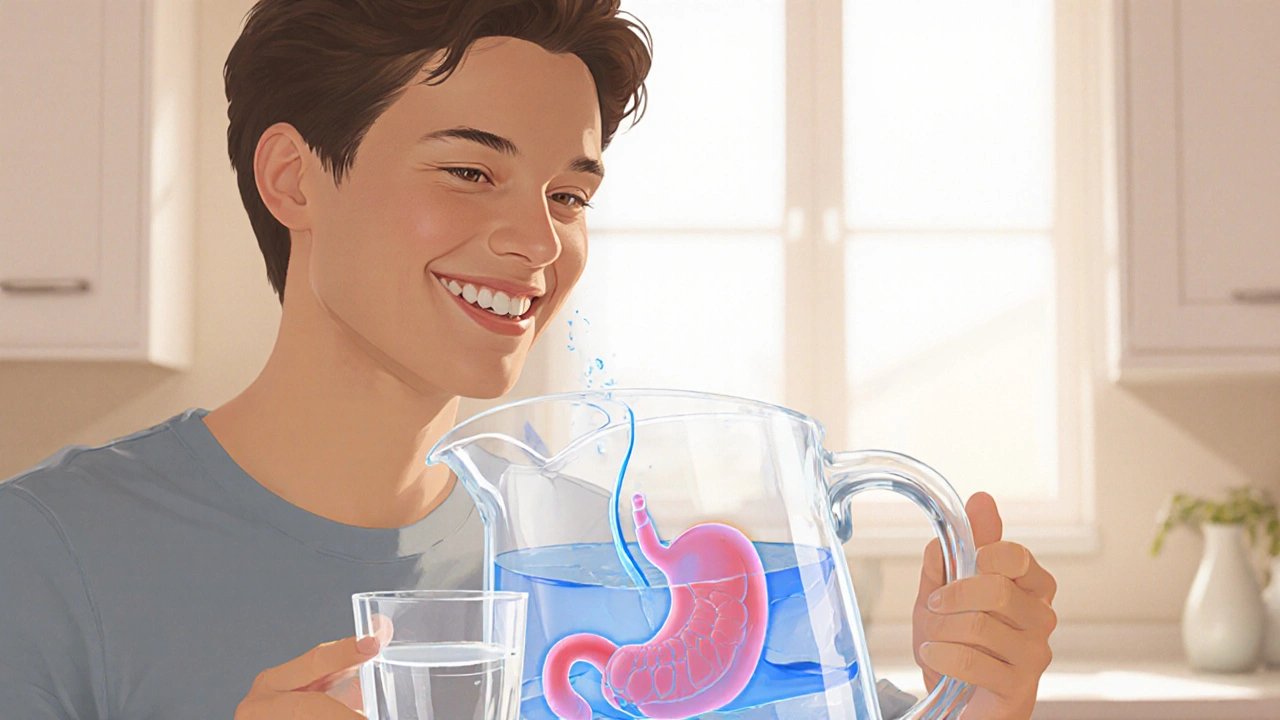Acid Reflux: Quick Guide to Relief
If you ever feel a burning feeling in your chest after a meal, you’re probably dealing with acid reflux. It’s a common problem that can mess with your comfort and sleep, but the good news is you can control it with a few easy steps. Let’s break down what’s happening and how to make it stop hurting.
What Causes Acid Reflux?
Acid reflux happens when stomach acid backs up into the esophagus, the tube that carries food to your stomach. The lower esophageal sphincter, a ring of muscle, should stay closed after you swallow. When it doesn’t seal properly, acid leaks back up and irritates the lining, causing that classic burning sensation.
Practical Tips to Ease Symptoms
First, watch what you eat. Fatty, spicy, or fried foods are big culprits, as are tomatoes, chocolate, and caffeine. Eating smaller meals and not lying down for at least two hours after a meal can also keep acid where it belongs. Elevating the head of your bed by a few inches helps if you wake up with heartburn.
Weight matters, too. Extra pounds put pressure on the stomach and can force the sphincter open. Even a modest loss of 5‑10% of body weight can lower reflux episodes. If you smoke, quit—nicotine relaxes the sphincter and makes reflux worse.
Over‑the‑counter options are useful for occasional flare‑ups. Antacids like Tums or Maalox neutralize acid quickly, while H2 blockers such as ranitidine or famotidine reduce acid production for longer relief. Proton‑pump inhibitors (PPIs) like omeprazole work best for frequent symptoms but should be used under guidance.
When home tricks and OTC meds aren’t enough, it’s time to see a doctor. Persistent heartburn more than three times a week, difficulty swallowing, or unexplained weight loss could signal GERD or other conditions that need prescription treatment or tests. A professional can help you avoid complications like esophagitis.
Some people find natural remedies helpful alongside medical advice. Chewing gum after meals can increase saliva flow, which neutralizes acid. A spoonful of honey or a slice of ginger can also soothe the esophagus. Just remember these aren’t replacements for proven treatments.
Track your symptoms in a simple diary. Note what you ate, when you felt the burn, and what helped. Over time you’ll spot patterns and can fine‑tune your diet and habits to stay comfortable.
Acid reflux doesn’t have to control your life. By tweaking meals, staying active, using OTC options wisely, and getting medical help when needed, you can keep the burn at bay and enjoy meals without fear.

Hydration's Role in Preventing Heartburn: Why Staying Hydrated Matters
Learn how proper hydration dilutes stomach acid, supports the esophageal sphincter, and prevents heartburn. Practical tips, fluid guidelines, and FAQs help you stay comfortable.